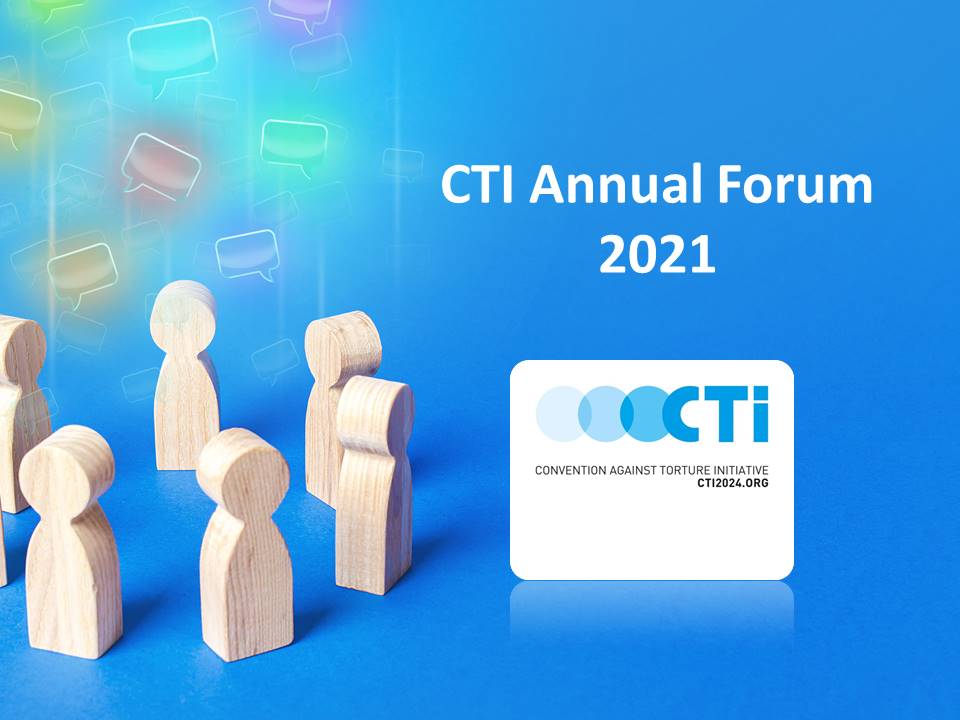Location
OnlineAttendance
Invitation Only
Date & Time
Start: 24/06/21 10:00
End: 24/06/21 11:30
Promising new developments and trends towards eradicating torture: Long-term Lessons from Covid-19 Responses.
Torture and other cruel, inhuman or degrading treatment or punishment (ill-treatment) still exist across the globe and the eradication of all acts of torture is still far from reality despite the growing number of States that have ratified or acceded to UNCAT. On 26 June, the world will again celebrate the International Day in Support of Victims of Torture that marks the moment in 1987 when UNCAT came into effect. It provides an opportunity to call on all stakeholders everywhere to unite in support of the hundreds of thousands of people around the world who have been victims of torture and those who are still tortured today.
In commemoration of this day, this year’s Annual Forum aims to provide CTI’s Group of Friends with an update on progress made and remaining challenges towards the universal ratification and implementation of UNCAT as well as some examples of promising practices and innovative approaches that have been developed in order to overcome obstacles to the prevention of torture generally, as well as caused by the Covid-19 pandemic.
The Covid-19 pandemic has caused unprecedented challenges for State authorities and the protection of human rights across the globe, including the right to be free from torture. It has posed particular challenges in policing and enforcing lockdowns and social distancing rules, quarantine orders and other confinement measures. In some instances, the enforcement of restrictions have revealed shortcomings in policing practices and a growing chorus of protests against reports of violence and heavy-handedness in national responses could be observed.
The pandemic has also caused additional challenges in managing prisons and other places of deprivation of liberty that have become hotspots for Covid-19 contagion and spread especially in the early days of the pandemic. In addition, there have been severe consequences for health-care systems, the efficient and fair continuation of judicial proceedings and other state institutions such as old age homes that have been confronted with immense challenges.
However, the pandemic has also offered States an opportunity and an incentive to rethink in particular how prisons and criminal justice systems work and what can be done to improve them. This was done for example, by looking at where non-custodial alternatives and other decongestion measures such as parole systems could be expanded, prioritised and made mainstream.
In practice, a number of positive and promising developments have been observed with regard to the effective implementation of UNCAT and the prevention of torture during the pandemic, some of which could be carried over into normal times and retained as permanent improvements. This includes significant efforts to decongest overcrowded prisons and other places of detention, improvements made to health and sanitation measures, the establishment of new or updated complaint mechanisms in detention facilities as well as improvements in access to information and systems of communication to guarantee contact with the outside world in prisons and other places of deprivation of liberty.
Both, the challenges and promising practices observed during Covid-19 and their impact on the prevention of torture and implementation of UNCAT will be explored during the 2021 Annual Forum, along with an opportunity to share information about other recent legal and practical developments which are helping to reduce incidents of torture and other ill-treatment.








